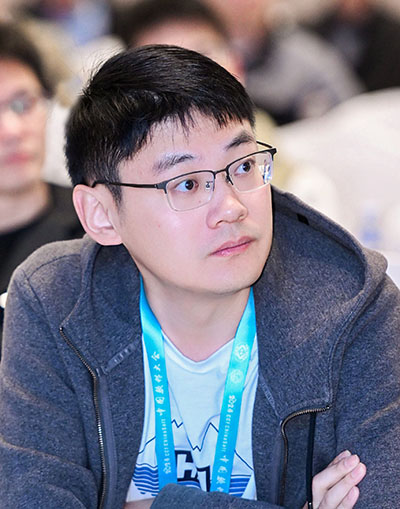 Please consider submitting papers to ASE'25, CCS'25, OOPSLA'26, where Qingkai
serves on the program committee.
Please consider submitting papers to ASE'25, CCS'25, OOPSLA'26, where Qingkai
serves on the program committee. 2025/05: Congrats to Bing and Yufan for their work on
2025/05: Congrats to Bing and Yufan for their work on securing routing protocols via topology synthesisbeing accepted by CCS 2025. (Paper, Website)
 2025/04: Our work on securing network protocol parsers got accepted by ISSTA
2025.
2025/04: Our work on securing network protocol parsers got accepted by ISSTA
2025. A good demonstration of LLM4SE,reviewers commented. (Paper, More)
- Static Analysis for Bug Scanning
Pinpoint is an industrial-strength automated software bug scanner. It has found hundreds of vulnerabilities with many CVEs in mature systems . It was successfully commercialized at Sourcebrella LLC, which was acquired by Ant Group in 2020 for improving the quality of many products such as Alipay, a popular digital payment app with over a billion monthly active users. Interested readers can refer to this doctoral dissertation as well as follow-up works on path-sensitive sparse dataflow analysis (PLDI'18, PLDI'21, OOPSLA'22a, PLDI'24, …) and approaches to detecting specific bug types (OOPSLA'21, OOPSLA'22b, …). Two ACM Distinguished Paper Awards were awarded for these studies.
 Keywords: path-sensitive
and sparse analysis, memory safety analysis, taint analysis.
Keywords: path-sensitive
and sparse analysis, memory safety analysis, taint analysis. - Static Analysis for Reverse Engineering
Reverse engineering by static program analysis attempts to understand through logical reasoning how a previously made software accomplishes a task with very little insight into exactly how it does so. The research group focuses on network protocol reverse engineering to ensure network security (CCS'23, SEC'23, OOPSLA'24, CCS'25, …), as well as reverse engineering of machine code for binary analysis (SP'23, ESEC/FSE'23, …). These techniques are expected to facilitate automated security analysis, such as bug scanning and fuzz testing. To date, many zero-day vulnerabilities have been discovered through these techniques , and an ACM SIGPLAN Distinguished Paper Award was received.
 Keywords: network
security, network protocols, disassembly, binary similarity.
Keywords: network
security, network protocols, disassembly, binary similarity. - Static Analysis for Fuzz Testing
Fuzz testing is powerful for revealing security loopholes in software. The research group is interested in leveraging static program analyses, particularly, abstract interpretation, to make a general fuzzer more effective and efficient (SP'20, SP'22, …). The group is also interested in applying fuzzers to domain-specific application scenarios, including compilers or interpreters, constraint solvers or theorem provers, network or distributed systems, to name a few (ESEC/FSE'21, ISSTA'21, ASE'24, ISSTA'24, …). By fuzzing, hundreds of bugs in state-of-the-art constraint solvers and open-source software have been discovered. The study received an ACM SIGSOFT Distinguished Paper Award and a Google Research Paper Reward.
 Keywords: incremental
fuzzing, directed fuzzing, testing large and complex systems.
Keywords: incremental
fuzzing, directed fuzzing, testing large and complex systems.


